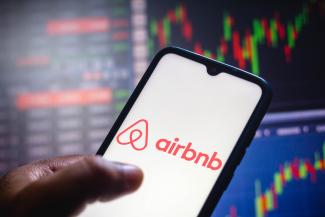
New York City's De Facto Ban on Airbnb rentals: Unpacking the Impact
New York City, famously known as the "City That Never Sleeps," has taken a significant step in regulating short-term rentals like those offered on Airbnb, Vrbo, and Booking.com. While not an outright ban, the recent measures imposed by the city have been named a "de facto" ban by many. In this blog post, we'll delve deeper into what this means for hosts, visitors, and the city itself.
The Evolution of Airbnb in NYC
Airbnb was founded in 2008 and emerged as a game-changer in the travel industry, allowing individuals to rent out their homes or spare rooms to travelers seeking a more authentic and affordable experience. In a city as dynamic as New York, it quickly gained popularity among hosts and guests alike. Travelers from all around the world utilized the services provided by Airbnb, whether for long-term or short-term stays.
The Regulatory Pushback
However, the rapid growth of Airbnb didn't go unnoticed by city officials and housing advocates. Concerns about the platform's impact on housing affordability and the hospitality industry prompted regulatory efforts to rein it in. In 2010, New York State passed a law prohibiting rentals of less than 30 days in multi-unit buildings if the owner or tenant is not present. This law aimed to preserve housing stock and prevent illegal hotels.
The "De Facto" Ban Explained and Its Impact on Hosts and Visitors
In recent years, New York City has ramped up its enforcement of these regulations. The term "de facto" ban refers to the practical effect of these regulations. It has become extremely challenging for hosts to comply with the 30-day rule, leading many to take their listings off Airbnb to avoid legal repercussions. This, in turn, has significantly reduced the availability of short-term rental options in the city.
The new measure requires hosts to register their offerings with the city and have it approved by the Office of Special Enforcement. The city threatens hosts using housing rental platforms with fines of up to $1,500 per transaction if the listing isn’t registered, with total costs increasing up to $5,000 in fines.
For hosts who relied on Airbnb income to make ends meet or supplement their incomes, these regulations have dealt a significant blow. The reduced demand for short-term rentals has made it difficult for them to continue operating legally and profitably. On the other side, visitors who appreciated the affordability and unique experiences offered by Airbnb may now find it more challenging to secure accommodations in NYC.
Housing Affordability and Tourism
Proponents of the regulations argue that they protect housing affordability by preventing landlords from converting residential units into illegal hotels, which can drive up rents and reduce housing availability for residents. They also believe that these measures help maintain the integrity of neighborhoods by limiting the influx of tourists.
Future Prospects
The challenge lies in finding a balance between the economic opportunities that Airbnb offers to hosts and the need to maintain housing availability for city residents. Airbnb and city officials continue to engage in discussions to find common ground.
As this situation unfolds, it's essential for potential visitors to be aware of the evolving regulations in New York City and for hosts to stay informed about the compliance requirements. While the "de facto" ban may have limited the availability of Airbnb and other traveling agencies' listings, the debate over short-term rentals in NYC is far from being over. As with any complex issue, finding a solution that satisfies all parties involved remains a work in progress for New York City.

